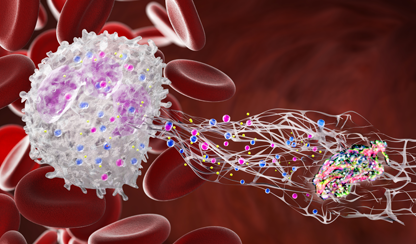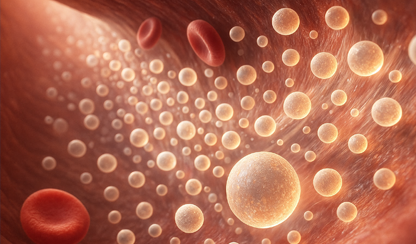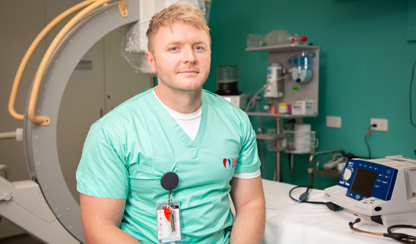03 August 2020
Media release
Improving heart health checks in families with a history of premature heart disease
A new study published in the MJA today demonstrates the benefit of a coronary calcium risk score being considered as part of the Federal Government-supported ‘Heart Health Checks’ to improve primary prevention of cardiovascular disease amongst people with a family history of premature cardiovascular disease.
It is hoped by enhancing the heart health checks to ensure they are in line with global prevention approaches, it would help to ensure those at intermediate risk of heart disease are identified and treated proactively rather than as ‘one size fits all’ approach.
Study author and Director of the Baker Institute, Professor Tom Marwick said the study highlighted that a Coronary Calcium Score (CCS), a highly sensitive marker of coronary plaque, should be considered for patients at intermediate-risk as part of the MBS-approved ‘Heart Health Check’ introduced by the Federal Government in April 2019.
The study, which involved more than 1000 Australians free of heart disease who were aged 40–70 years with a family history of premature coronary artery disease, showed that more than 50% had a CCS of zero indicating very low risk. For people with a family history, this is a highly reassuring finding.
However, Professor Marwick said access to a CCS could inform the decision to commence statins in up to a third of the study’s participants, which has significant ramifications for how we assess and in some cases treat Australians with a family history of heart disease.
Professor Marwick said current Australian guidelines for statin therapy as a primary prevention were based on the Australian Absolute Cardiovascular Disease Risk (ACVDR) calculator. The guidelines, last updated in 2012, are more conservative in identifying people as being at high risk who should have risk reduction, compared with international guidelines — the relevant threshold being an annualised risk of >3% compared with >2% in the US. This minimised over-treatment but could result in under-treatment of patients with a family history of heart disease.
“This study highlights the ambiguity of the identification risk using the Australian risk calculator. Over 75% of 151 participants who had CCS >100 (calcification warranting lipid intervention) were low-risk under current Australian guidelines, while 19% at intermediate risk had a CCS of zero. It shows that the calcium score reclassified risk in about 40% of the study participants and could change statin treatment in one third,” Professor Marwick said.
“People with a family history of heart disease have been told they are at greater risk of developing heart disease and suffering a heart event. By enhancing the heart health checks, we can better stratify their risk and proactively put in place preventive treatment where needed.
“As we are seeing with US guidelines, CCS could be used as a decision aid to consider statin therapy in intermediate risk patients, and to avoid treatment in those with zero CCS”.
“At the heart of this is the ability to give greater assurance to people with a family history of heart disease, to help reduce CVD mortality and morbidity rates and ensure we use our health resources wisely to better prevent and treat heart disease in Australia”.
CT calcium score
Plaque inside the arteries of your heart can eventually grow and restrict the flow of blood to the muscles of the heart, or rupture and cause a blockage. The challenge is to identify coronary artery disease before it causes signs and symptoms. Measurement of calcified plaque with a heart scan enables your doctor to identify plaques at an early stage. This scan is non-invasive and does not require any injection of a dye/contrast like an angiogram.
Case study
When Melbourne resident, Tony Hill, heard about the Baker Institute’s study calling for people with a family history of heart disease it piqued his interest. His father and older brother had both died of heart attacks in their early 50s. Tony is now in his early 70s and remains concerned about his heart health. “I’ve got four children and two grandchildren and I need to be around for them,” he says. But a Coronary Calcium Score of nearly 1600 was cause for immediate action, which resulted in Tony undergoing a double bypass.
He’s now feeling fit and healthy but says this was the ‘wake-up call’ not to be complacent. He is now encouraging his older boys to get a CCS and stress tests. It could, he says, have been a totally different story and he now doesn’t take anything for granted.
For further information or to organise interviews please contact:
Tracey Ellis
T: 03 8532 1514
M: 0433 781 972
E: tracey.ellis@baker.edu.au





